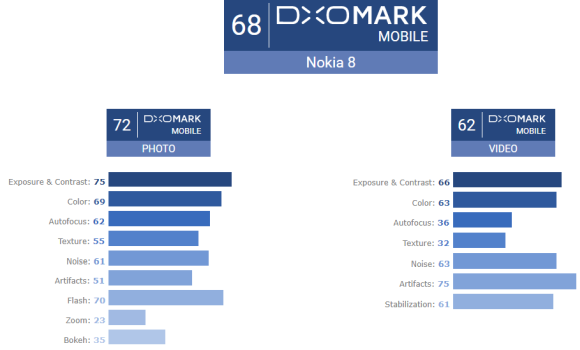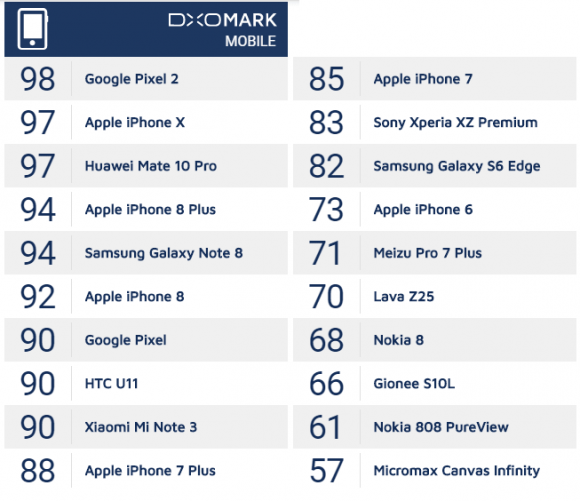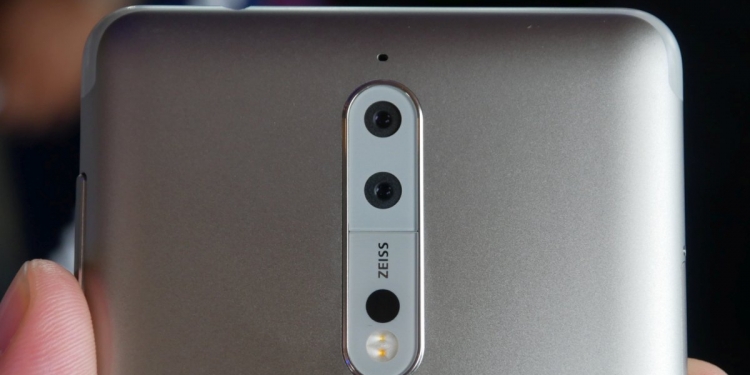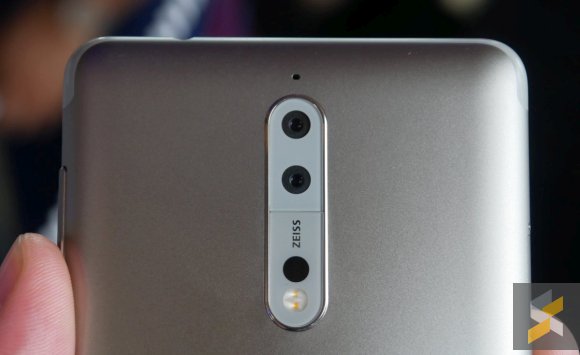When the Nokia 8 was introduced, many had expected it to be a serious photography contender. It had dual 13MP f/2.0 cameras at the rear with ZEISS optics which shoots in both colour and monochrome.
The Nokia flagship had just completed its evaluation at DxoMark and its scores were pretty disappointing. It’s so low that it is even ranked 5 points lower than the iPhone 6 that has a single 8MP f/2.2 camera.
According to DxOMark, the Nokia 8 is a decent device but there’s room for improvement if it wants to compete with the likes of Apple, Samsung and Huawei. They noted that it struggles to get any usable exposure in its darkest 1 Lux low light scene and dynamic range is good only if its Auto HDR function kicks in properly.
They also added that photos sometimes show low levels of saturation and there’s also noticeable colour shading with a strong loss of sharpness towards the edges of the frame. Since it doesn’t have a dedicated telephoto lens, you’ll lose details when zooming in and DxoMark recommends that you avoid 2x zoom unless it is an emergency.

When it comes to video, the Nokia 8 loses points for autofocus and stabilisation. Their Nokia 8 test unit refuses to autofocus in low light which makes their videos unusable. For stabilisation, DxOMark says it’s on par with the Galaxy S6 edge from 3 years ago. Overall, the Nokia 8 scored 72 points for photos and 62 points for video.

On DxoMark Mobile’s current list, the Nokia 8 is placed below the Galaxy S6 edge, iPhone 6 and Meizu’s Pro 7 Plus. The only consolation is that it beats its former Nokia 808 PureView which came with a massive 41MP sensor with Carl Zeiss optics. You can check out DxoMark’s Nokia 8 camera review here.
When we reviewed the Nokia 8, one of our biggest frustrations was its camera software which is extremely buggy and it lacked basic manual controls like ISO, shutter speed and manual focus. Despite having great credentials on paper, it doesn’t produce images that are on par with today’s flagship smartphones. You can learn more in our Nokia 8 review.
Do you agree with DxoMark’s assessment? Let us know in the comments below.









